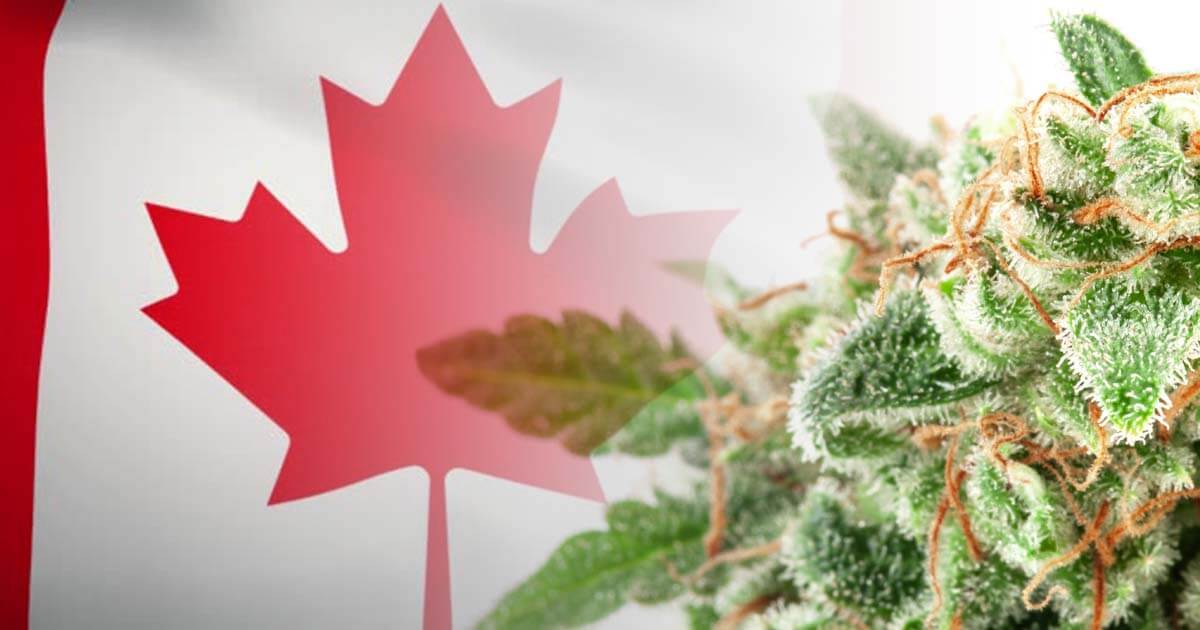We don’t often think of our neighbors up north in Canada. We know it’s cold, that they have a leader who most people agree looks good even if they disagree with his policies, and that they don’t drive polar bears to work but sometimes have to drive around them.
Besides this, did you know that a couple of years ago, they accomplished what our leaders have failed to do and legalized cannabis country-wide? It’s true: Canadian cannabis legalization is a win for enthusiasts everywhere in proving that large-scale change is still possible.
In October of 2018, stores were open country-wide, and the public has had access to legal cannabis that has seen reductions in possession-related crime from 26,402 in 2018 to just 46 in 2019.
The elimination of unfair arrests and limitations on medical users is cause enough to celebrate, but the massive economic impact that growers, researchers, and retailers contribute yearly (about $4 billion in 2021) is equally impressive. Crime, smuggling, or bootlegging has not seen the spike that naysayers predicted—in short; everyone has won something by legalization.
So how did Canada, the peace-loving nation of lumberjacks and donut enthusiasts, cross party lines and become the second-ever country to legalize cannabis nationwide? Here’s our take on Canadian cannabis legalization and its story.
Cannabis prohibition in Canada looked much the same as our own. Racial fears and social/political pressure from the United States drove many hemp farmers out of production.
This change in growing habits is a massive turnaround from the policies that governed Canada previously, as King George III had offered hemp seeds and free land to colonists destined for the New World.
Similar to our own embarrassing history of domestic cannabis slander, publications in the North stirred up fears that the African American population would be turned aggressive by cannabis.
In a midnight session of the House of Commons, a “new drug” was scribbled onto paper and banned alongside Opium in 1923.
This one session launched decades of prohibition and set Canada on a track of social crimes against users that would persist until the beginning of the 21st Century and the eventual Canadian cannabis legalization.
RELATED READING: Canada’s Cannabis Culture is Following California’s Crash Course
In July of 2001, Health Canada established Medical Cannabis Legislation designed to cover patients who had chronic pain or seizures. In part, this legislation was forced by the Roe v. Parker case of 2000, where a medical cannabis patient made a compelling case for how the cannabis legislation of his time meant he had to either suffer without cannabis or pursue illegal means to obtain it.
The legislation was a strong start and continual court appeals over the following decade. Finally, the majority Liberal Party in 2015 drafted legislation with the help of a special task force. The group was comprised of industry experts who had an equitable future in mind for businesses and those who would engage (on both sides of the law) with the legal considerations of a highly regulated industry.
In October of 2018, Bill C-45 was officially launched. Through Canadian cannabis legalization, cannabis was to be taxed by the federal government, producing an initial estimate of $618 million yearly, with projections extending that number into the billions in coming years due to industry growth, research innovation, and increases in medical and recreational usage.
Burdens were removed from the legal system, which had spent too much time chasing undue arrests, and thousands were granted the opportunity to submit paperwork and have their criminal records expunged of cannabis-related crimes—a process that the USA still debates heavily today.
Canada’s systems, like those in any country, are far from perfect. Regardless, Canadian cannabis legalization is a great step forward and even helps outline where we can strengthen our own domestic legalization plans.
While we can’t expect any single country to succeed where hundreds of others have failed in terms of sweeping legislation and social perception change, we can at very least take cues and inspiration from a country that set out to accomplish the unthinkable and succeeded in only a short year of deliberation.
- Facebook and Instagram Loosen Cannabis Restrictions, But Is It Enough From Meta?
- Combating Violent and Dangerous Crime Act Targets “Candy-Flavored” Cannabis Products
- Retail Spotlight – Mayflower in Lowell, MA
- Benzinga Chicago 2025 Recap
- Iowa’s Surprising Veto of Psilocybin Bill HF 383
- North Carolina House Bill 328 and the Growing Trend of Hemp Regulation in the U.S.













